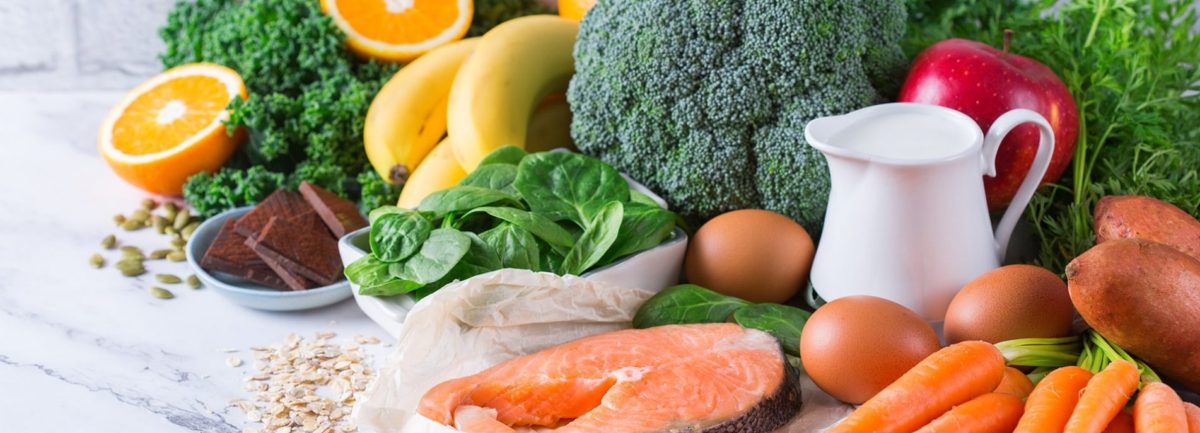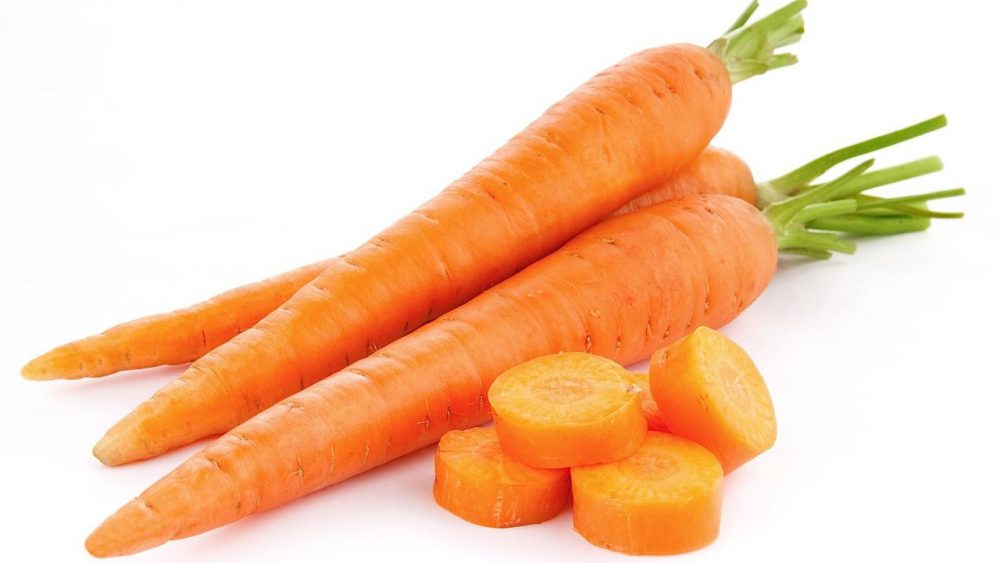According to the American Lung Association “The right nutrients in your diet can help you breathe easier, and in some cases, help minimize asthma symptoms. While there’s no specific diet recommendation for asthma, there are some foods and nutrients that may help support lung function and reduce asthma symptoms.”

Foods to Eat
Research shows that following a Mediterranean diet rich in fish, olive oil, fruits and vegetables, whole grains, and legumes can help reduce asthma symptoms or prevent the condition altogether.
In general, the best diet for asthma involves including more fresh fruits and vegetables and foods high in antioxidants, vitamins, and magnesium.
Vitamin D
Vitamin D plays an important role in boosting immune system responses and helps to reduce airway inflammation. Low levels of vitamin D have been linked to an increased risk of asthma attacks in children and adults. Research also shows adults with asthma may benefit from vitamin D supplements.
Food sources of vitamin D include fortified milk, salmon, orange juice, and eggs.
Vitamin E
Vitamin E contains a chemical compound called tocopherol, which may decrease the risk of some asthma symptoms like coughing or wheezing. Sources of vitamin E include almonds, raw seeds, Swiss chard, mustard greens, kale, broccoli, and hazelnuts.
Vitamin A

Vitamin A, also known as carotenoids, may improve lung function in adults and children. Vitamin A can help fight oxidative stress and support a healthy immune system. Studies show that a high dietary intake of foods rich in vitamin A such as tomatoes, carrots, and leafy vegetables can improve lung function and reduce attacks in adults with asthma.
Foods Rich in Magnesium
In recent years, a growing body of evidence has emerged to support the use of magnesium supplements to reduce inflammation and relax the bronchial muscle to allow air to leave the lungs. Foods rich in magnesium include pumpkin seeds, Spinach, Cashews, Salmon, Dark chocolate, and Low-fat dairy products.
Whole Grains
Eating whole grains can reduce the symptoms associated with asthma. One study published in 2018 found that people who ate an overall healthy diet rich in whole grains experienced fewer asthma symptoms and overall greater asthma control. Good sources of whole grains include Whole wheat bread, crackers, pasta, Barley, Oatmeal, Brown rice, and Buckwheat.
Foods to Avoid
According to the American Lung Association, there are certain foods and chemicals found in foods that should be avoided because they may worsen symptoms of asthma. It’s important to also keep in mind food allergens and restrictions will vary among individuals.
Foods That Cause bloating
Avoid foods such as beans, carbonated drinks, garlic, onions, and fried foods. These may cause gas or bloating, making it more difficult to breathe. This can result in chest tightness and asthma attacks.
Sulfites
They are chemicals commonly added to foods and beverages to improve their taste, appearance, or shelf life. Things such as sauerkraut, dried fruit, and pickled foods are very high in sulfites. Beverages like wine, alcohol, and grape juice are also high in sulfites. These products can worsen symptoms and lead to adverse reactions in some people with asthma.
Salicylates
Salicylates are chemicals naturally present in tea, coffee, and some spices. Though it’s very rare, some people with asthma may be sensitive to foods or beverages with salicylates.
Fast Food
In general, fast food should be limited because these foods contain high levels of saturated fat, additives, and sodium. For those with asthma, it can pose greater health risks and worsen symptoms.
According to one study published in Respirology, those who ate fast food, especially hamburgers, were more likely to have severe asthma and wheeze than those who consumed fast food less than twice per week.
Keep in mind that food restrictions and allergies vary depending on the individual. Always consult your doctor or a nutritionist before making any drastic changes to your diet.